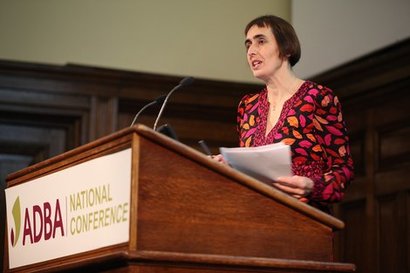
The Department for Business, Energy & Industrial Strategy (BEIS) confirmed at the end of last week that the tabling of legislation to reform the Renewable Heat Incentive (RHI), the government’s principal mechanism for incentivising the generation of renewable heat, will now not take place until the beginning of 2018.
The legislation was originally due to be voted on in the spring of 2017 but was delayed after the government called a snap general election. It was then due to be introduced in the autumn, but has been delayed yet further due to the delay in re-establishing the Joint Committee on Statutory Instruments, a backlog in the legislative timetable following June’s general election, and a vast requirement for legislation related to Brexit.
The proposed RHI legislation would restore tariffs for the production of renewable heat to previously higher levels, facilitating the construction of anaerobic digestion (AD) plants that can produce renewable biogas, which can be upgraded to biomethane for injection into the gas grid. Millions of pounds of investment in AD plants is currently on hold, waiting for clarity and certainty from government.
AD treatment specialists Clearfleau Ltd have written directly to BEIS Secretary Greg Clark urging action on the legislation, stating that the setback is “delaying injection of significant volume of biogas generated from industrial residues into the gas grid, limiting the ability to curb UK carbon emissions.”
ADBA also understands that BEIS is considering imposing restrictions on the amount of investment in renewable heat that can receive a guaranteed tariff rate. Some AD developers that have invested around £100,000 in reaching the stage where they can apply for a guarantee in reliance on the promised higher tariff rates may therefore face the prospect of missing out on government support entirely.
“This further delay to the passing of the RHI legislation is another unnecessary blow to a vital industry that can make a large contribution to meeting the UK’s targets for decarbonising heat, to which the government has to date made very little progress" said ADBA Chief Executive Charlotte Morton. "This delay not only puts millions of pounds of investment at risk but on a wider level is a significant threat to the UK’s ability to meet its climate change goals. I’ve written directly to ministers at BEIS urging them to rethink their decision to delay the legislation further and to reiterate the damaging effect that this further delay will have on the AD industry and its ability to help decarbonise the UK’s gas grid. We’re also very concerned at the suggestion from BEIS of new restrictions on the number of AD plants that can receive tariff guarantees. BEIS needs to ensure that it doesn’t punish AD for offering a clean and cost-effective way to heat our homes and businesses.”
For additional information:
Anaerobic Digestion & Bioresources Association (ADBA)
Department for Business, Energy & Industrial Strategy (BEIS)

